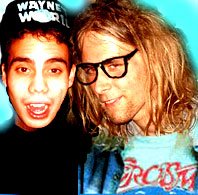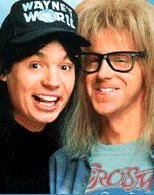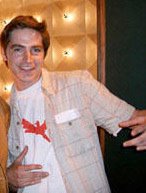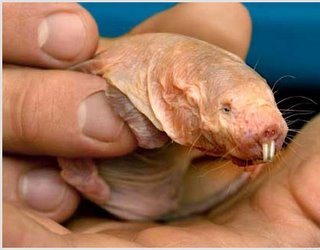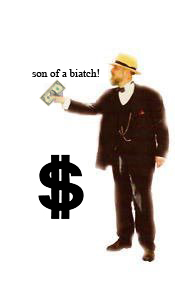R.I.P. Harold

THE NEW YORK TIMES
February 25, 2006
Harold Hunter, 31, Skateboarder With Celebrity Appeal, Dies
By COREY KILGANNON
Harold Hunter, whose skateboarding prowess and outsize personality led him to modeling and movie roles, celebrity friendships and prominence in the downtown Manhattan scene, was found dead on Feb. 17 in the East Village housing project where he grew up. He was 31.
His brother, Ronald, who summoned the police to the apartment, said the cause was a heart attack.
Mr. Hunter was already well known in skateboarding circles when he was a teenager and began gaining mainstream fame after landing film roles, including one in "Kids," the 1995 movie portraying a decadent teenage subculture.
By his early teens, he was touring with Zoo York, the prominent New York skateboarding team, and appearing widely in skateboard magazines and videos, showing his mastery of moves, from basic skills like the ollie, a skateboard hop, to high-flying backside heel flips.
From benches to stoops to staircases and building facades to handrails, the cityscape of Lower Manhattan became Mr. Hunter's skate park. He was a fixture in Washington Square, Union Square and Astor Place and at skating spots like the Brooklyn Banks, the concrete slopes under the Brooklyn Bridge in Manhattan.
Harold Atkins Hunter's mother died when he was a child, and he was raised by family members in the Campos Plaza housing project on East 13th Street. In addition to Ronald, he is survived by another brother, Michael Hunter, and his sister, Rebecca Hunter.
"When he was a kid, his brother said: 'What are you doing skateboarding? That's for white kids,' " recalled his friend Billy Rohan, a professional skateboarder. "Harold said, 'Are you saying I should be stealing TV sets?' He got smacked for that, but he never stopped skating."
He began earning money from Zoo York and from skateboarding competitions and modeling for clothing companies like Tommy Hilfiger; he also got television acting roles.
Mr. Hunter grew up on the same block as the actress Rosario Dawson. When she was 15, he helped persuade the director of "Kids," Larry Clark, to cast her in the movie, Ms. Dawson recalled on Thursday at Mr. Hunter's wake on the Lower East Side.
"Harold's skateboard was just a vehicle," she said, adding: "He became famous for his personality and his spirit. If anybody came to New York, he would take them in and show them the city."
"I saw some skate kids when I was in Brazil," she said. "When they heard I was from New York, they said: 'New York? Do you know Harold? ' "
Mr. Hunter was laid out in a coffin wearing his silver Nike sneakers, and with him were his trademark black fedora and a skateboard.
Hundreds of visitors filed through the funeral home, some carrying briefcases or Prada bags or skateboards. Photographs showed Mr. Hunter sitting on the street or reveling with celebrities, including Paris Hilton.
As a teenager, he earned a reputation as the king of New York's skateboarding scene, but his skating skill was perhaps surpassed only by his charm and his fondness for parties. His fame expanded beyond skateboard circles to night life and music scenes and celebrity and underground culture.
Ray Mendez, a skateboard professional and a filmmaker, said: "He was a human magnet. One minute, he'd be hanging out with a celebrity, the next minute, he'd be with a wino."
With an endearing bravado, Mr. Hunter referred to himself as a legend and ranted constantly about one day "getting famous" and bedding supermodels.
"He was the ambassador to downtown Manhattan," Mr. Rohan said. He said Mr. Hunter had helped galvanize New York's skateboarding movement by recruiting black and Hispanic children and by introducing them to the young suburbanites who had abandoned privileged lives to skate the streets of New York.
With age, acting roles were harder to come by and petty contract and sponsorship disputes hindered his efforts to start his own skateboard equipment and apparel companies.
He never held a formal day job and always seemed to be one step away from being broke and homeless. He lived on a steady diet of fried chicken and mayonnaise sandwiches and depended on the per diem pay from the skate team manager.
"The skateboard world was his family, and anywhere he went he was a walking party," Mr. Rohan said.
Mr. Hunter died essentially penniless, and collections from friends and fans have helped pay for his wake and burial.
"His skateboarding was a metaphor," Mr. Mendez said. "Harold was always rolling, always moving and transitioning between people and places and situations. He was born with all kinds of obstacles, and he ollied over them all."

